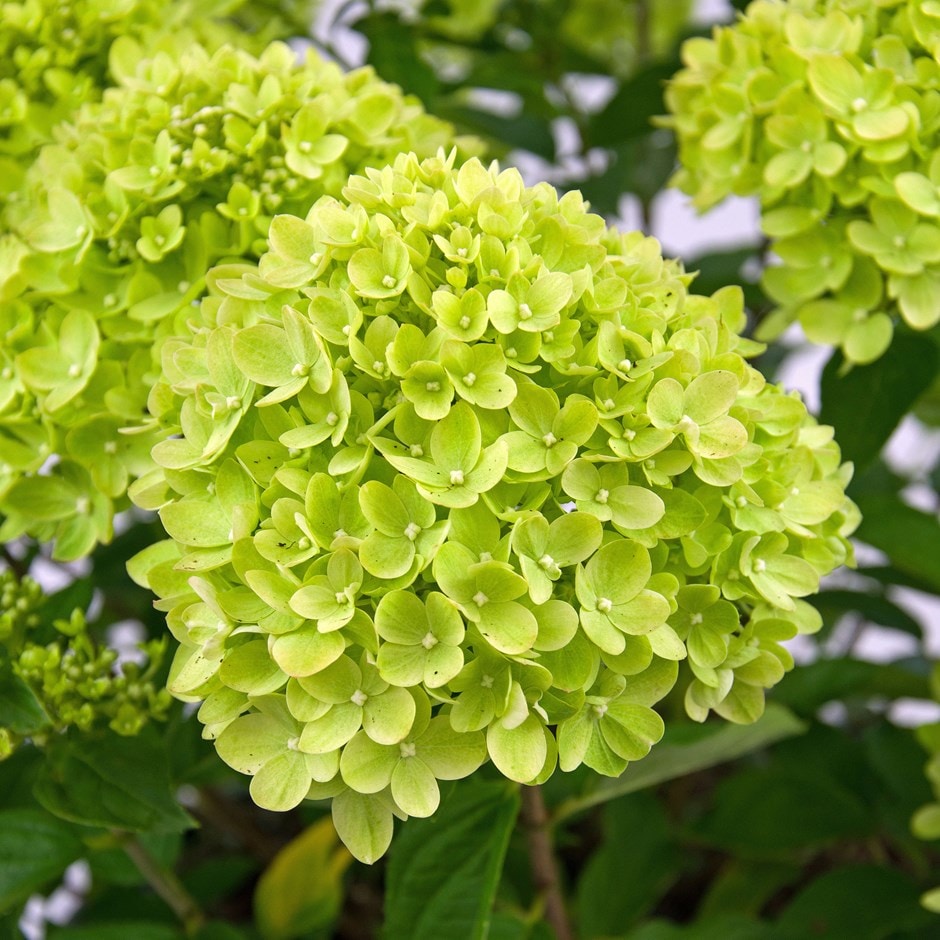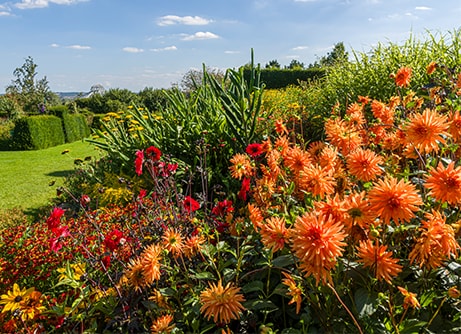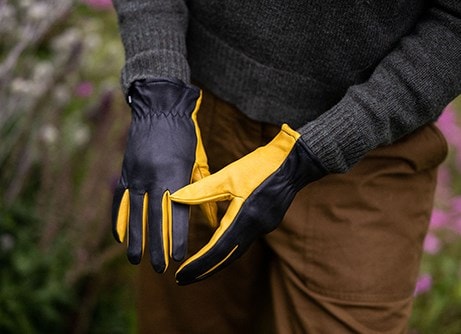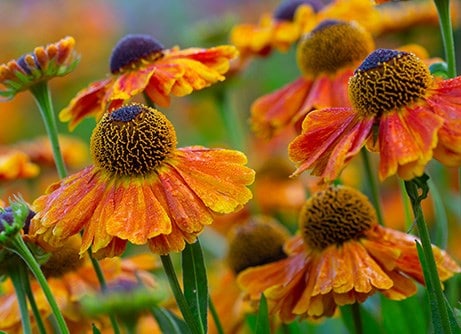
Perfect for smaller gardens or containers, this compact hydrangea produces produces showy, conical flower heads that emerge lime-green in late summer, transitioning to creamy white and finally soft pink as the season progresses.
Its strong stems keep the blooms upright, making it a reliable choice for colourful displays even in north-facing positions. The autumn foliage adds seasonal interest, while the long-lasting flowers are excellent for dried arrangements.
Thriving in well-drained, moist soil, Hydrangea paniculata ‘Little Lime’ is an excellent option where space is limited, providing vibrant and changing colours throughout the growing season.
Its strong stems keep the blooms upright, making it a reliable choice for colourful displays even in north-facing positions. The autumn foliage adds seasonal interest, while the long-lasting flowers are excellent for dried arrangements.
Thriving in well-drained, moist soil, Hydrangea paniculata ‘Little Lime’ is an excellent option where space is limited, providing vibrant and changing colours throughout the growing season.
How to care for Hydrangea paniculata Little Lime ('Jane') (PBR):
Choose a spot with partial shade to full sun, though at hotter, sunnier times of the year, partial shade is preferable to protect the blooms and avoid the plant wilting after planting. The soil should be well-drained, rich, and consistently moist, but not waterlogged.
Dig a hole twice the width of the root ball and just as deep, then mix in plenty of organic matter such as compost or well-rotted manure. Place the plant in the hole, backfill with the enriched soil, and water thoroughly. Mulch around the base to retain moisture and keep the roots cool, but keep the mulch away from the stem to prevent rot.
Regular watering is important, especially during dry spells, to ensure the plant establishes well and produces abundant blooms - hydrangeas do not like to dry out. Remove faded flowerheads in spring after the danger of frosts, cutting back the flowered stems to a strong pair of buds. Take out misplaced or diseased shoots.
Once established, remove a quarter to a third of the shoots to the base of the plant.
Dig a hole twice the width of the root ball and just as deep, then mix in plenty of organic matter such as compost or well-rotted manure. Place the plant in the hole, backfill with the enriched soil, and water thoroughly. Mulch around the base to retain moisture and keep the roots cool, but keep the mulch away from the stem to prevent rot.
Regular watering is important, especially during dry spells, to ensure the plant establishes well and produces abundant blooms - hydrangeas do not like to dry out. Remove faded flowerheads in spring after the danger of frosts, cutting back the flowered stems to a strong pair of buds. Take out misplaced or diseased shoots.
Once established, remove a quarter to a third of the shoots to the base of the plant.
Flowering period:
- Jan
- Feb
- Mar
- Apr
- May
- Jun
- Jul
- Aug
- Sep
- Oct
- Nov
- Dec
Eventual height:
1.2m
Eventual spread:
1.2m
Position:
Full sun / light shade
Rate of growth:
Average
Soil:
Moderately fertile, moist, well-drained soil
Hardiness:
Fully hardy
-
This shrub is deciduous so it will lose all its leaves in autumn, then fresh new foliage appears again each spring.
-
Humans: Skin allergen; Pets: Harmful if eaten
Product options

2 litre pot
was £34.99
now £27.99
In stock
(shipped within 2-3 working days)
(shipped within 2-3 working days)

12 litre pot | 60 - 80cm tall
£89.99
available to order from autumn
Unavailable
1
Delivery options (pick your preferred option at checkout)
Standard Delivery£5.99
Named Day Delivery£10.99
Goes well with
Penstemon 'Raven' (Bird Series)
beard tongue
From £8.99
View options
| 9cm pot | £8.99 |
|
|
| 3 × 9cm pots | £19.99 |
|
|
| 2 litre pot | £19.99 |
|
|
| 3 × 2 litre pots | £49.99 |
|
View details








